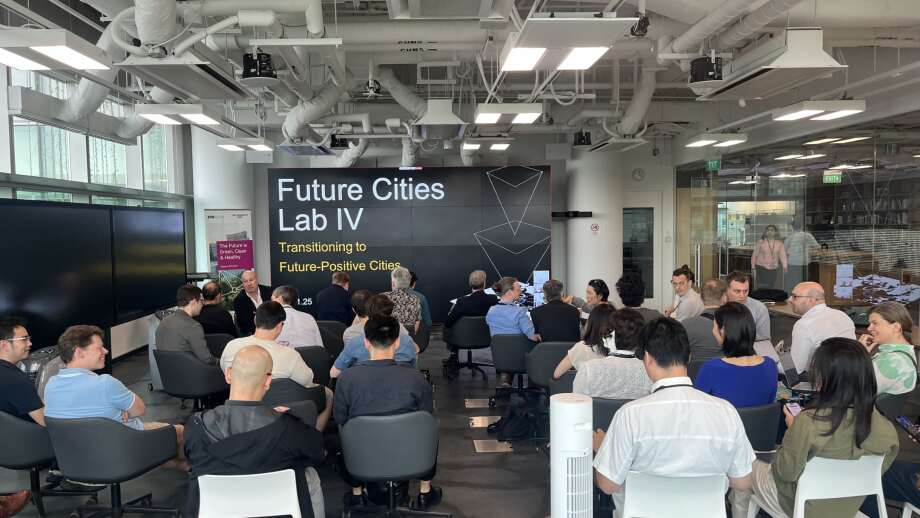Dear FCL Global Community,
In an era marked by complex, global challenges, collaborative research has become imperative for advancing radical interdisciplinarity, especially in pursuing future-positive urbanism. The intricate systems that define cities demand holistic approaches that transcend traditional academic silos. The Future Cities Laboratory (FCL) exemplifies this ethos, uniting expertise from Singapore and Switzerland’s dynamic research community to pioneer transformative solutions. As FCL IV sets its sights on reimagining cities as spaces of opportunity, collaboration will serve as the cornerstone of its mission to transition from reactive paradigms to bold, forward-looking innovations.
On 14 January, the Future Cities Laboratory held an introductory event at the Singapore-ETH Centre (SEC), its home base since 2010, to initiate the collection of research ideas for its next phase. A similar event was hosted in Zurich on 7 December 2024, marking the first step in fostering collaboration and dialogue across continents.
The workshop, guided by the FCL IV outline under the theme "Transitioning to Future-Positive Cities", brought together researchers from across Switzerland and Singapore's vibrant research landscape. The programme's current leadership emphasised its enduring mission: to shape the future of cities through research innovation and actionable solutions.
FCL IV aims to challenge conventional urban research paradigms, which often focus on mitigating the damage of the past. Terms such as regeneration, rejuvenation, repair, reuse and recycling dominate the discourse, reflecting a preoccupation with undoing damage rather than transitioning to, or imagining new possibilities. The frequent use of the prefix 're-' underlines this reactive approach. In contrast, FCL IV envisions cities as spaces for opportunity. This next phase seeks to inspire bold, optimistic strategies that redefine urban research as a catalyst for transformative, forward-looking change.
At a time when cities are often framed within the ominous narrative of the Anthropocene - an epoch defined by humanity's destructive impact on the planet - FCL IV aims to shift this paradigm by taking a positive, forward-looking approach to research. This vision moves beyond the confines of the Anthropocene narrative, which, while highlighting pressing challenges, can also foster a doomsday mentality that stifles visionary thinking and action, and instead focuses on what cities can become: spaces of opportunity for a sustainable future.
As FCL embarks on this new chapter, the journey towards future-positive urbanism is underway.
Julio and Sri
